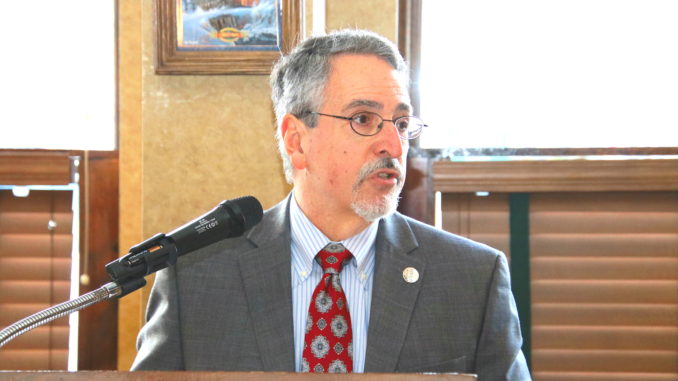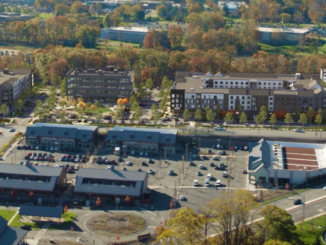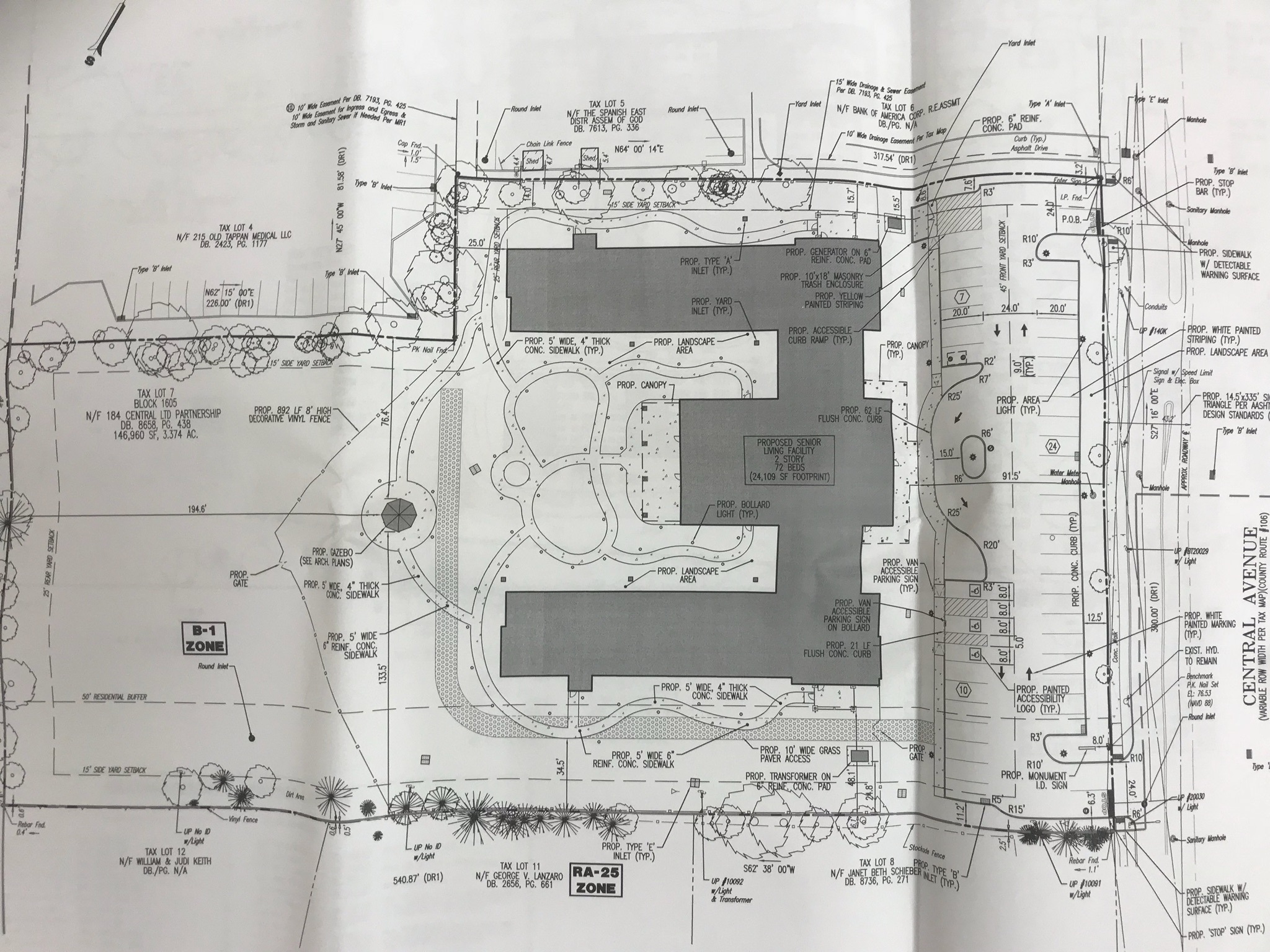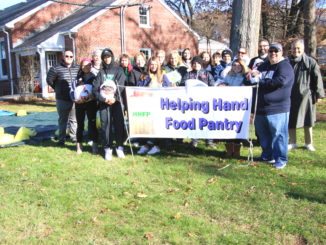
HILLSDALE, N.J.—Speaking at the annual Breakfast with the Greater Pascack Valley Mayors on Jan. 29 at the Iron Horse Restaurant in Westwood, Mayor John Ruocco said that “For the fourth year in a row we were able to keep increases in the municipal portion of the property tax to 1.8% to 2.8%.”
He said “I think we’ve got to do better. I’m going to advocate for public budget hearings for departments for next year.”
The breakfast, hosted by the nonprofit Greater Pascack Valley Chamber of Commerce, gave each participating mayor or his or her designee from the area five minutes to speak on hot-button issues.
The public was invited, and time was set aside for questions and answers.
Also speaking were Emerson Mayor Danielle DiPaola, Montvale Council President Douglas Arendacs, Old Tappan Mayor John M. Kramer, Oradell Mayor Dianne Didio, Park Ridge Mayor Keith Misciagna, Washington Township Mayor Peter Calamari, Arroyo, and Woodcliff Lake Mayor Carlos Rendo.
Introduced by former Westwood Mayor Skip Kelley, who serves on the GPVCOC board, the organization’s president, Robin Malley of Friedberg Properties, set the tone for the roughly hourlong event, airing concerns about vacant storefronts and increasing traffic.
Ruocco said he was pleased that the town designated the industrial zone along Patterson Street between Knickerbocker Avenue and Prospect Place as an area in need of redevelopment without the use of eminent domain.
Ruocco also hailed an agreement that saw Waste Management temporarily halt transfer station operations in exchange for a role in the redevelopment process.
He said the borough faces a challenge in arriving at a redevelopment plan for the Patterson industrial area.
“We’re balancing small-town character, which is a lot of what our residents want to keep, against the need to attract commerce and increase our tax ratables and satisfy our affordable housing obligations,” he said.
Ruocco said the borough has “an agreement calling for 24 affordable units in the industrial area, a total of about 160 units if you do rental, 120 if you do purchase.”
He said the borough planner is drafting a document on the borough’s “tolerance” for characteristics of such housing—including use, density, height, and appearance—and that public input would help shape the plan.
He called out a longer-term challenge: “We have some council members who would like to also rehabilitate the downtown area and declare that an area in need of rehabilitation.” [As opposed to redevelopment; the tax implications are different.]
He added, “Our Economic Growth and Development Committee seems willing to tackle this but not right now; I think it’s somewhat down the road.”
MAIN STORY: Mayors Dish Over Breakfast:
Amazon’s Impact, Housing Mandates, More



